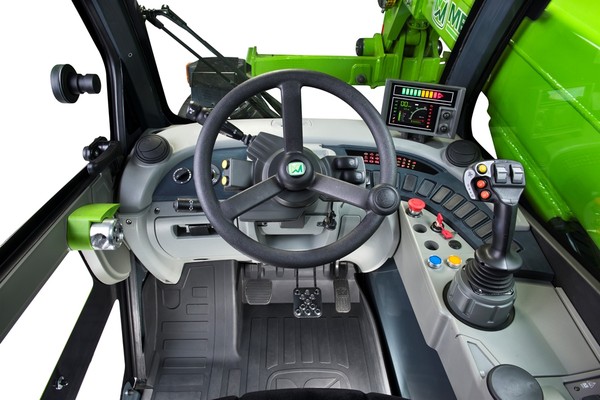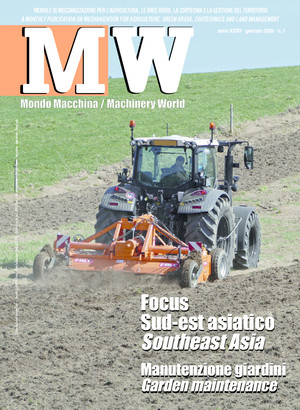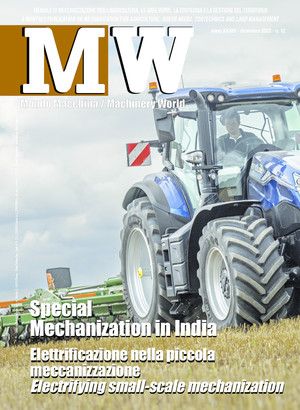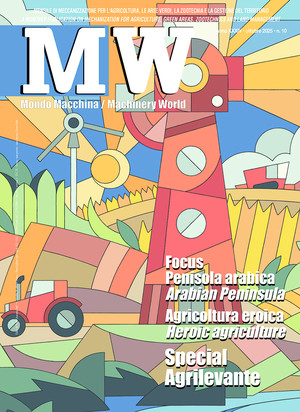
ISOBUS, innovation and safety for implements
FederUnacoma staged a training seminar in Bologna focused on the new frontiers of information technology applied to agricultural machinery and equipment. The ISOBUS system has become a fundamental factor in agricultural mechanical engineering innovations and figures heavily in competition among manufacturers in the sector. Substantial investments are made in research for the development of further uses of the system
We know that ISOBUS is a word which has already appeared on these pages, a term we hear more and more often in talk of technologies for the world of agricultural mechanization. Increasing numbers of people, workers, experts in the sector, technicians, company managers, are looking for information and asking: “Just what is ISOBUS? Who is it meant for? For which machines does it make sense to use this technology?” For answering these and other questions, FederUnacoma, the Italian Agricultural Machinery Manufacturers Federation, decided to invest in organizing a series of initiatives, seminars and thorough studies over 2016 to inform member companies on the value of new electronic technologies for agriculture and the results of adopting and implementing them. One of their main purposes of is to push Italian agricultural machinery and especially equipment manufacturers to greater applications of ISOBUS and other technologies in order to maintain a strong competitive stance in Europe and internationally. The investments these manufacturers are required to make are substantial but fit in a precise company philosophy which looks to innovation as a strong strategic factor. The first seminar on the schedule was dedicated to innovation and given the title ISOBUS: Innovation and Safety for Implements held last January 26 in Bologna. Taking part were 60 technicians and 45 member companies, most of them belonging to Assomao, the Italian Implements Manufacturers Association in FederUnacoma. The session was opened by Marcello Mongiardo from CNH Industrial in his role as AEF, Agricultural Industry Electronic Foundation, vice chairman. His report was focused on the presentation of the objectives for the formation of a consortium with the priority of the promotion of ISOBUS and solving the problems of differing interpretations of ISO 11783 standard, the basic technology, which partially limited the spread of the standard on a large scale. Also brought out were various AEF considerations, including organization, work groups, test laboratories for the certification of the ISOBUS devices, one of which is REI – Reggio Emilia Innovation in Italy, the AEF database, new technologies and related issues. The presentations were especially useful for providing a minimum general picture of what can be expected in the near future for worldwide agricultural mechanization. Alessio Bolognesi from FederUnacoma followed with an attempt to answer fundamental questions on applications of the ISOBUS technology and underscored the usefulness of pursuing this strategy. Bolognesi’s remarks initially shed light on the ways the ISOBUS technology can be applied to all types of machinery. He said the protocol can be adopted not only for large costly machines for open field operations and pointed out the advantages and solutions which can apply to all agricultural machinery and equipment with the awareness that at stake in the future are the services made available to customers, their accessibility and efficiency, and that these can result precisely from the widespread use of the ISOBUS technology. Moreover, technology innovation is the only path to follow for allowing a further increase of the sound reputation Italian industries’ products. Today’s objective is not only to spread the technology for tried and tested applications but also to develop new services and support for more complicated work logic for increasing productivity as well as new functions associated with safety. In this connection, the seminar led on to the presentation of a number of innovative solutions for applying the ISOBUS technology to various machines for which, up to the present, have not yet adopted the technology. On the front of the costs involved, there was talk of a promotion initiative currently mounted by AEF and FederUnacoma aimed at the simplification of the physical ISOBUS media which is still too much of a financial burden for some categories of machinery. The federation is heading up an AEF work group dealing with this issue. In conclusion, ISOBUS research activities were discussed by Giuseppe Saija, the director of EuKnow, who spoke on the EU Research and Innovation program and the European Horizon 2020 financing program providing opportunities for the agricultural mechanical engineering industries, with special reference to tenders from small and medium enterprises, SMEs, a Fast Track to Innovation. The FederUnacoma seminars are scheduled to continue through various initiatives over the entire year. The next one coming up but not yet scheduled has been named Functional Safety for focusing attention on issues involving the design of safety control systems for the operation of machines considered critical for ensuring the safety of operators and bystanders.








